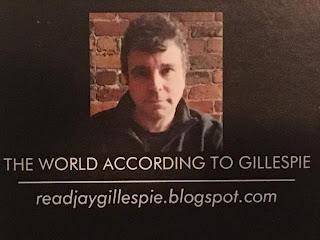RIDE SHARE SERVICES ARE HERE TO STAY This column originally appeared on Wicked Local
It appears that the age of the taxi cab in the city of
Boston is coming to an end. I was
talking to a hotel doorman in Copley Square last Sunday morning and mentioned
how business appeared to be slow. “Cabs
sometimes wait in line for seven hours for a fare,” he said. For a city that was once a bustling
thoroughfare of busy cabs of every style, size, and color zipping about
competitively, I was shocked. Ride-share
services like Uber and Lyft have infected Boston’s taxi system, and the demise
of the cab appears to be imminent.
Ride-share services are quickly eclipsing the use of cabs. Any hotel doorman will tell you that there
has been an economic shift in the way that people are getting around the city. “The game has changed,” says Blake Sutcliffe,
who has been a doorman at the Boston Marriott Copley since it opened 33 years
ago. “The taxi system was a monopoly. The city should have restricted supply. For me personally, it’s changed the job, but
that’s how business is. All businesses
like competition as long as the competition is not competing with them.”
Regulated by the Hackney division of the Boston Police Department,
the taxi (carriage) system has been a mainstay of Boston streets since 1854. “The taxi industry is a vital pulse of the
city,” according to Donna Shaw of the Boston Taxi Association in the Boston
Business Journal. Boston cabs were
always required to purchase valuable medallions in order to operate. Hackney’s internet home page even warns
consumers: “Look for the Medallion!
Remember if it doesn’t say ‘Boston Licensed Taxi’ you could be in for a
bad ride.”
Until recent years, Medallions were a high-priced investment that
authorized drivers to legally operate a licensed taxi in Boston. The competition created by ride-shares,
however, has changed that. “Medallions
were recently as high as $600,000. Now they
might be as low as $60, 000,” says Blake Sutcliffe. “There never should have been a Medallion
system. I believe in a free market.” Cabs have historically earned the reputation
of being one of the only customer service providing institutions where rudeness
and deceit were the expected norm. “Cab
drivers had a reputation of being somewhat arrogant, and understandably. They had a monopoly. Uber has freed up the market,” says
Sutcliffe.
Former Boston hotel manager Kip Riley
has noticed “long lines of cabs around town while there are Uber and Lyft
drivers picking up around them left and right.
It seems that Uber and Lyft are significantly underpricing the cabs
which makes Ubers and Lyfts more attractive as people are generally always
looking for a better deal.” Uber and
Lyft are quickly establishing themselves as an available better deal.
“The taxi business is probably going to be gone,” says
Sutcliffe reflecting on the emergence of Uber and other ride-shares. “I’m surprised they didn’t stop it. Now it’s gone too far. It’s just too popular with the public. The reality is that it is better for the
consumer. Otherwise, it wouldn’t be so
popular. Why would you take a car into
the city when you can take an Uber? You
get dropped off at the door and when you figure in that you don’t have to pay
to park, it’s a wash. It just makes
sense,” says Sutcliffe.
According to reputable Uber driver Peter Dutcher of East
Bridgewater, “ride-share services are going to take over. You get to ride in a nicer car and, in most
cases, the driver is a nicer person. The technology
of Uber eliminates being taken for a (so-called) ride. The price, directions, and destination are
all determined and agreed upon ahead of time.”
And despite some bad press, Dutcher describes Uber as “generally safe,”
citing the fact that you are sent a picture of the driver for identification
purposes and then both the driver and the passenger are given the ability to
provide a final rating. “So it’s in
everyone’s best interest to behave,” says Dutcher.
Blake Sutcliffe agrees that an Uber ride is generally a
better experience. The cab drivers are
getting to the point financially where it is not even worth it to update their
vehicles. “Why buy an expensive new cab
when the income is no longer there? As a
result, cabs are not getting replaced and the overall condition of the fleet of
taxis is becoming worse and worse.”
“Some cab drivers I feel bad for,” says Sutcliffe. “They’ve lost hundreds of thousands of
dollars. There are some really nice guys
who lost. But that’s business.”
“It’s changed the whole game,” says Sutcliffe. “I never have a cab line anymore. In the morning at the hotel, it is probably
70 percent Uber – just directing people looking for their Ubers. But that’s how business is. Uber freed up the market.”




Comments
Post a Comment